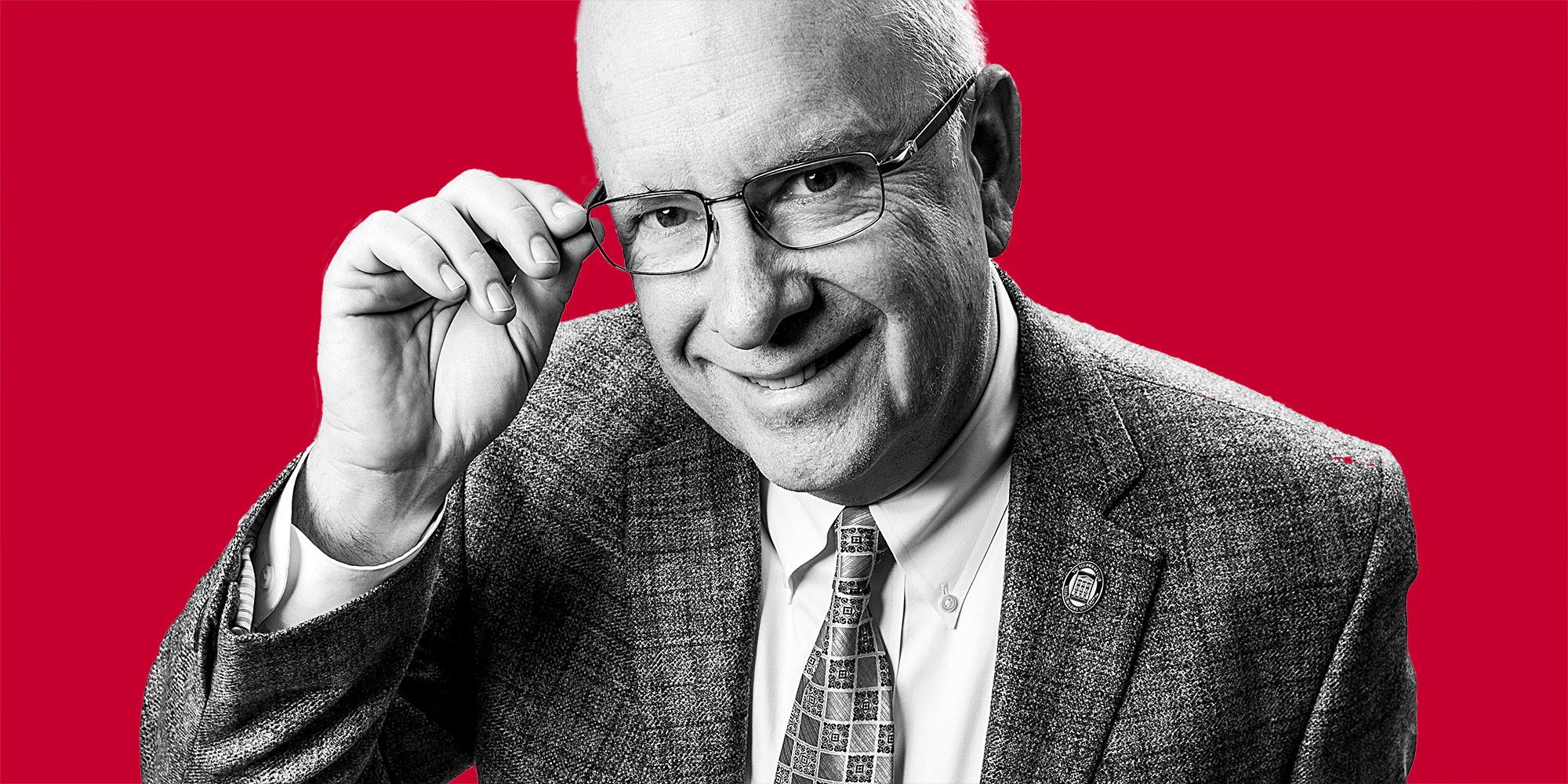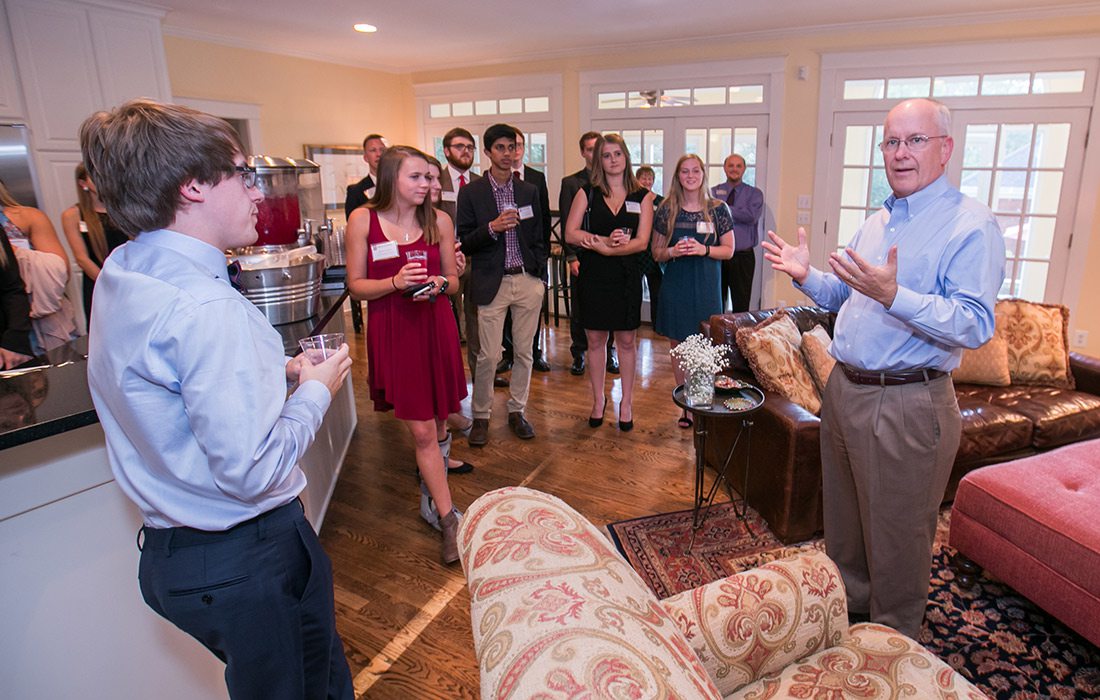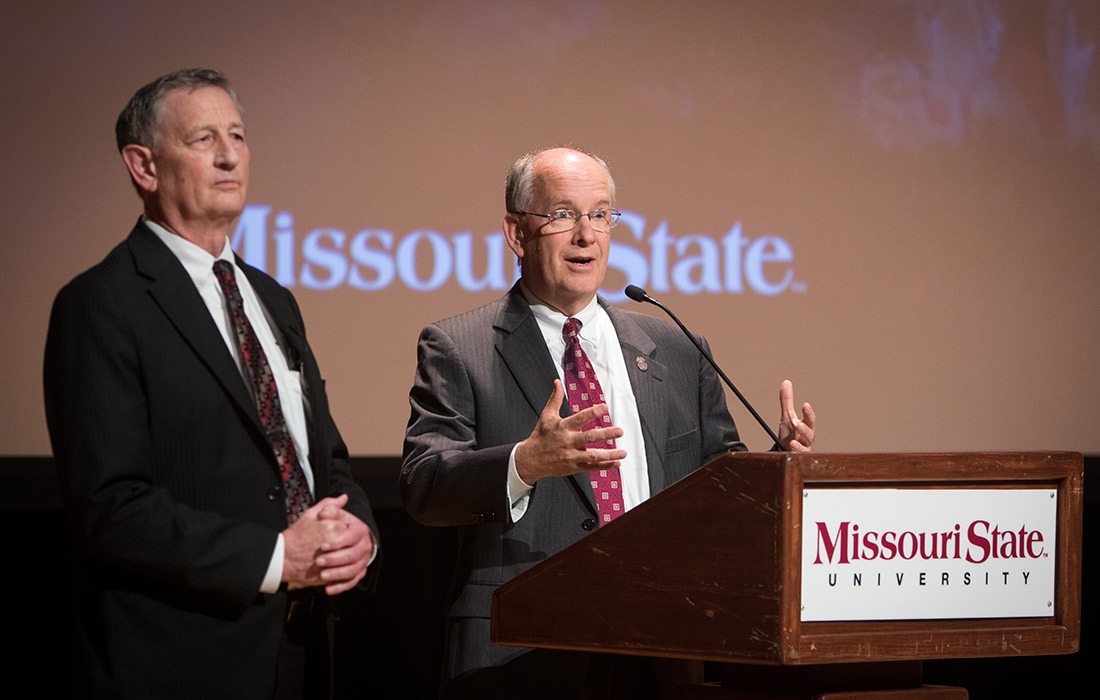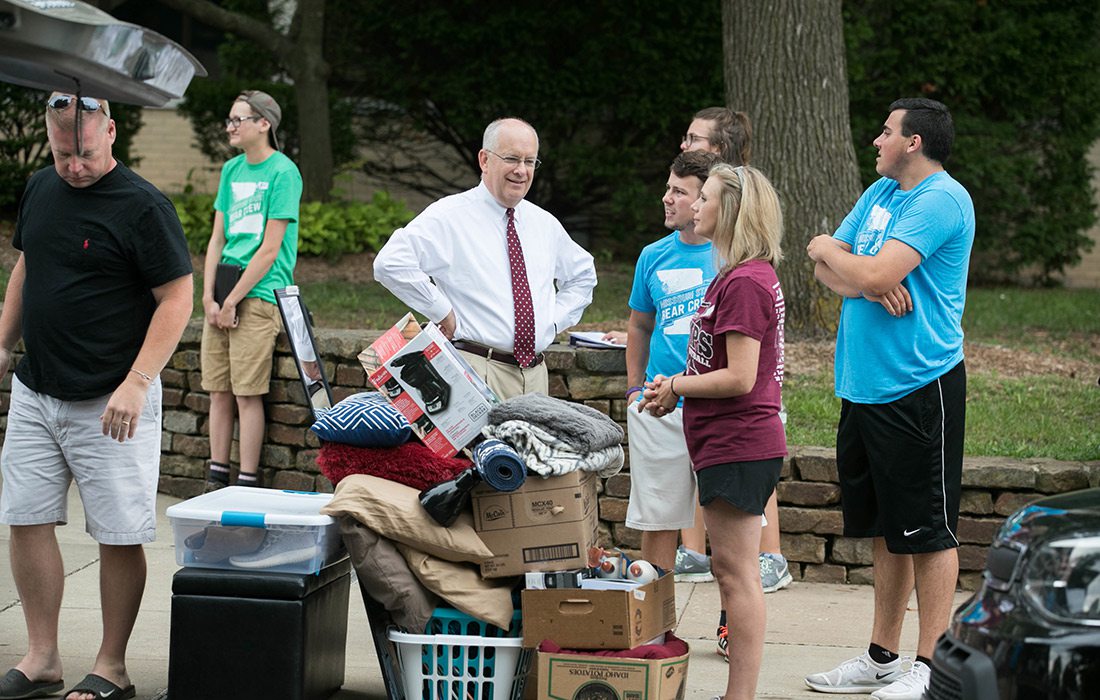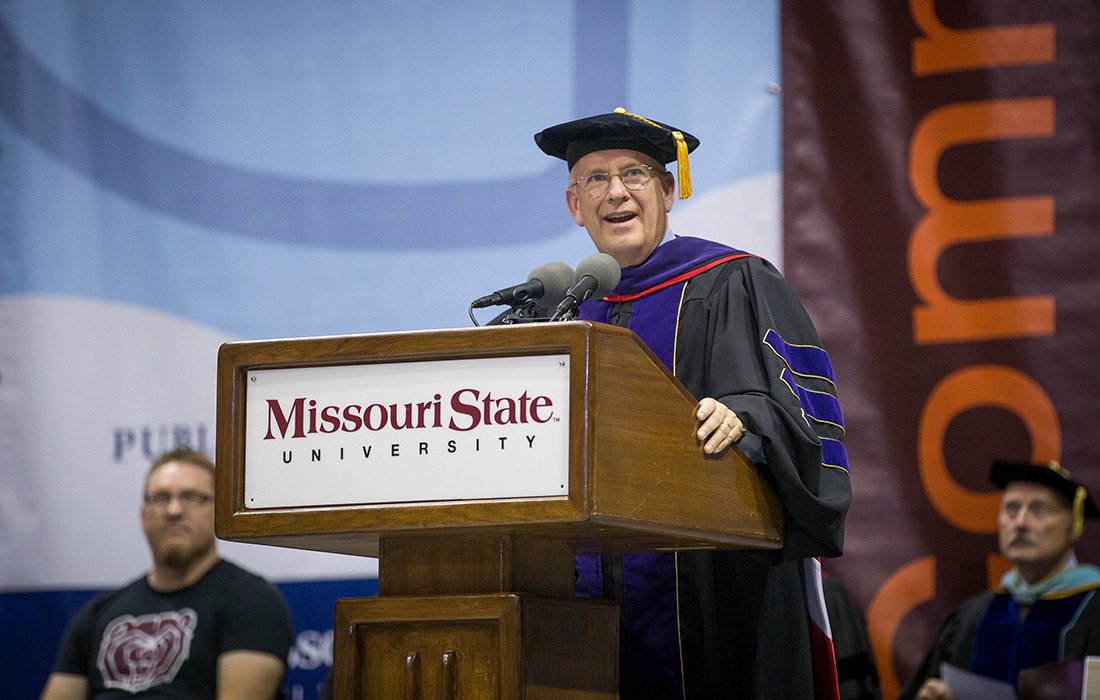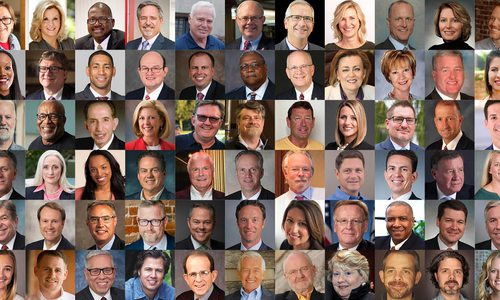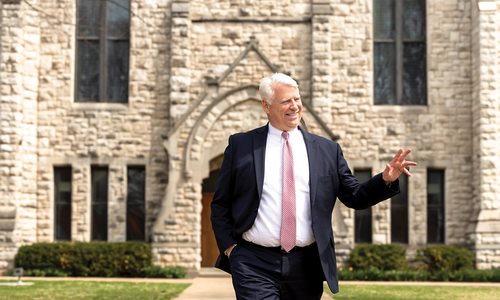MSU Kicks Off Largest Fundraiser in its History
The Onward, Upward campaign set a $250 million fundraising goal, which could change the future for the university.
In case you missed the big news—and John Goodman’s visit to the Missouri State University campus—Boomer has launched the biggest fundraising endeavor in MSU history. It’s dubbed the Onward, Upward campaign, and it’s goal is to raise $250 million to benefit the university. Announced in October during Homecoming weekend, the deadline for this lofty campaign is December 2022, which gives MSU three years to fill its coffers. But MSU President Clif Smart isn’t worried. He has a plan.
Actually, he’s been working on that plan for several years. It all started when the university’s budget started changing. Two decades ago, two-thirds of MSU’s operating budget came from state funds. Now, only one-third comes from state funds. This makes private support more important than ever in moving the university forward. “As we look forward,” Smart says, “we know our state has a limited ability to robustly fund higher education. So it is important that private support becomes richer.”
When talking about private financial support, Smart isn’t just talking about MSU alum. He’s also talking about community leaders who see the impact the university has on Springfield’s business sector. “It’s way beyond alumni,” Smart says. “Bryan Magers is not an alum, but he gave the lead gift to the Mager’s Health and Wellness Center. The same is true for the Davis-Harrington Welcome Center where only one of the four people involved is an alum.” So how do you increase public interest in the university? For starters, you team up with a big-name alum like John Goodman. When Smart filled him in on plans for the Onward, Upward campaign, which includes a permanent structure for Tent Theatre, Goodman loved the idea. He now serves as chairman of the campaign.
Beyond supporting Tent Theatre, that $250 million will be funneled to four main focuses: program support, student support, faculty support and facilities. That includes increasing facility and equipment support for the Darr College of Agriculture with three new buildings, a degree completion fund to help students financially when they fall on difficult times, the creation of a student-managed investment fund that will offer hands-on investment training, new student scholarships, the creation of new faculty positions and much more.
It’s an ambitious goal to say the least, but already, MSU has raised more than $151 million. Smart attributes that early success to the rise in the university’s reputation. Enrollment is up, graduation numbers are up, graduate degree offerings are increasing, and people are paying more attention to MSU in Jefferson City and across the state. As Smart sees it, the time is right to launch a campaign like Onward, Upward. “I really think this will be the most transformational thing to happen to the university while I’m president,” he says. If everything goes according to plan, Onward, Upward could change the trajectory of the university for years to come.









